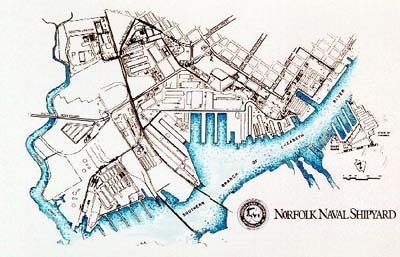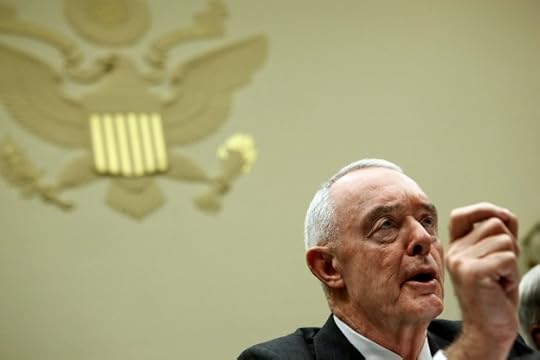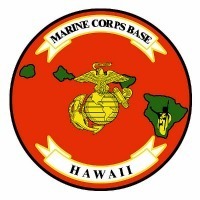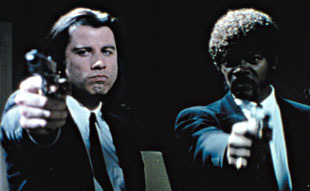Thomas E. Ricks's Blog, page 222
October 27, 2011
Navy firings: Rape charges against a CO

Yesterday I asked
what was going on in the Navy with all these firings. Some commenters argued
that the Navy doesn't screen effectively at lower levels, and so has a lot of
people blow up on the launching pad at the 0-5 and 0-6 level.
I was skeptical. But then this
article appeared in Navy Times.
Back in April I mentioned that the Navy had fired the skipper of the USS
Momsen. Now we learn he has been charged with rape, sodomy, maltreatment,
and conduct unbecoming an officer, growing out of two incidents, one with a
female junior officer, the other with a female sailor.
Thanks to all who commented yesterday. I don't know a lot
about today's Navy and learned a lot.
OMG, what a great government acronym!

My favorite
new (at least to me) government acronym is used in a new FBI report on gang activity. It is
OMG, for "Outlaw Motorcycle Gangs." Hey, everyone's picking on the one percenters!
This raises a
bunch of new possibilities. What's next, STFU for "Security Transition Force
Uniforms"? SHIT for "Super High Income Transactions"?
October 26, 2011
Quote of the day: In our age, 'Information is cheap, but meaning is expensive'

"We
now live in a world where information is potentially unlimited. Information is
cheap, but meaning is expensive." — George
Dyson. (I'd heard of his pop and his sister but not of him.)
This
wasn't always the case. I remember reading in Braudel's
history of the Mediterranean that in 16th century Europe,
information was mighty expensive. One example that struck me (if I am recalling
Braudel correctly) was that sending a letter from Spain to Paris cost the
equivalent of a university professor's annual salary. Now sending that e-mail
is basically free. On the other hand, no one got spammed back in 1550.
I think that what this blog should try to be about is making
sense of new information. I march forward with new resolve!
21 -- and some questions

No. 21 for year: The commander of the Naval Shipyard at
Norfolk, Virginia, was bounced for "conduct
unbecoming an officer and a gentleman." Apparently he had a lousy command
climate. This move kind of had been expected since he was put
on the shelf in May.
His predecessor also had been relieved.
Is something going on the Navy this year? Are captains
screwing up more, or are standards being enforced more rigidly? Anyway, I am
glad to see accountability being enforced, if that is what is going on.
Also, I wonder if anyone has studied the pattern of reliefs.
How many are Naval
Academy graduates, and how many are prior enlisted?
If anybody from the Navy reads this blog (besides SEALs, I
know some of youse do), I'd especially welcome your comments.
(HT to RD)
French foreign minister: Collapse of the Assad regime in Syria nearly inevitable
October 25, 2011
Rumelt on strategy (VI): A real strategy is made more by induction than deduction

And the little grasshoppers thought I was done with Rumelt!
This post is actually the final entry about his book.
As I said earlier,
I liked the first half of Richard Rumelt's book
on strategy more than the second half. I especially was struck by what I think
is his most important chapter, "Bad Strategy," from which I've quoted
extensively.
That said, I did like his chapter 16, which emphasizes that
a strategic plan is essentially a hypothesis. "A good strategy is, in the end,
a hypothesis about what will work. Not a wild theory, but an educated
judgment." As such, Rumelt
continues, it must operate along the fringes of the unknown. "To generate
strategy, one must put aside the comfort and security of pure deduction and
launch into the murkier waters of induction, analogy, judgment, and insight."
This makes me think that a good strategy should probably
make everybody a little uncomfortable, especially its creator, because he or
she will understand its weaknesses and the risks it runs.
Next up: Colin Gray's book of maxims on strategy. (I'm
reading all the books I put aside while I was reading books I had to read so I
could write my own book.)
Gen. Barry McCaffrey (III) discusses mentoring: That word kind of nauseates me, but the best ones were my NCOS

A final excerpt
from the oral history of Gen. Barry McCaffrey, about mentoring:
I always sort of gagged at the
word. The biggest mentoring influences on my life were, number one, the NCOs I
served with as a lieutenant, captain, major and lieutenant colonel … If I
had to point out mentors, I would say 1st Sergeant Emerson Trainer,
Platoon Sergeant Comar Johnson in the 82nd Airborne, Command
Sergeant Major Jim Randolph in the 24th Infantry Division. Jim Randolph
was six foot two, twisted steel. He never used curse words. He didn't drink and
was a natural born fighter who loved soldiers. He made a huge impact on me.
Actually, he was much closer to being like my brother than anybody I ever met.
(p. 28 and p. 30)
Quote of the day: What would Tolstoy write about General Schwarzkopf?
"All military headquarters are
alike but every unhappy headquarters is unhappy in its own way." —Rick Atkinson,
summarizing in Crusade:
The Untold Story of the Persian Gulf War what it was like to work for
General H. Norman Schwarkzopf.
October 24, 2011
The great gamble of Iraq 2012, what to read about post-surge Iraq, and a new book of Saddam Hussein's transcripts

President Obama
looks pretty serious about U.S. troops leaving Iraq in just 10 weeks. This
means not that the war is over, but that we are leaving the war, which
goes on. And on.
And so on.
The next six
months in Iraq will indeed be interesting. Secretary of State Clinton said on Meet the Press yesterday, "Now,
are the Iraqis all going to get along with each other for the foreseeable
future? Well,
let's find out." I saw that movie! Feeling lucky, Iraq? Well, do
ya?
Here is the
worried assessment
of retired Army Gen. Jack Keane, who in 2006 played a major role in fixing U.S.
strategy in the war. I suspect various factions and external actors have been
keeping their powder dry while U.S. troops were still on the scene. No one
wanted to mess much with "the biggest tribe," especially because those fighters
and weapons might be handy once that tribe left. It's like the Jets and the
Sharks making nice while waiting for Office Krupke to move along. With Uncle
Sam out of the way, it will be interesting to see which players -- internal
and external -- seek to fill
the vacuum.
Why am I such a "pestamist"? -- to borrow a term my daughter invented as a child.
Because none of the basic questions that led to the civil war of 2006-07 have
been resolved-how to share oil revenues, what the
role of the Kurds will be, and basically how to govern the country. (On
the other hand, supporting the Clinton view, I have heard the argument that the
U.S. presence is the factor that had enables Iraqi politicians to keep
questions hanging fire.)
Think I'm being
paranoid? OK, here is Yochi Dreazen's account
in National Journal of a recent visit
in Basra:
The Iranian consulate here dominates a section of this
oil-rich city's skyline. An enormous Iranian flag can be seen from half a mile
away, ringed by a welter of radio towers and satellite dishes. The walled
compound houses three large villas and six smaller buildings. It's protected by
well-trained Iranian and Iraqi troops. On a recent visit, I stopped my car and
stepped out to take a few photos. Within seconds, a dozen men in tracksuits
rushed out of adjacent houses and stores and surrounded me, handguns drawn. My
translator assured them that we were journalists. The men, unsmiling, ordered
me to hand over my camera and then methodically erased every picture I had
taken since arriving in Basra four days earlier. They shoved us back toward our
car and slammed the doors. Leaning into an open window, one of the guards told
us to leave the area and not return. He was speaking Farsi.
When I read that,
I thought of three things. First, someone telling me years ago that Iran doesn't
want to control Baghdad, which is uncontrollable, it wants Basra, which is oil
exports. Also, of two things Ambassador Ryan Crocker said about Iraq a couple
of years ago:That the events for which the war will be remembered have not yet
happened and that he kind of expected Iraq to wind up looking like Lebanon. I
think he is still right on both counts.
A CNAS colleague recently asked what she should
assign her students to read about Iraq since the surge -- which after all began
more than four years ago. I was surprised that I couldn't think of a book that
captured the post-surge era. What I came up with was the writings of Toby
Dodge. Another CNAS colleague suggested also the work of Joost Hilterman,
especially this
article. I'd be interested in any other suggestions from all of youse.
(Maybe for the West Point faculty, we could compile a list of the 10 best
articles and books on Iraq since the surge.)
I also really
liked the overview provided by a
recent article by Safa Rasul al-Sheikh and Professor the Lady Emma Sky in Survival.
(She's slumming at Oxford
now.) It provided a pretty good overview of what has happened in Iraq since
2006, especially from the perspective of Iraqis. A couple of their conclusions:
The Sunni
insurgents were driven to negotiate because they came to the realisation that
they could not overthrow the new regime, that they were losing Baghdad to the
Shia militias, and that Iran was a bigger threat to them than the United
States.
(p. 127)
Iran eventually
succeeded in making a second-term Maliki premiership inevitable by putting huge
pressure on the Sadrists to support him.
(p. 138)
Tom again: Meanwhile, over the weekend
I read a pretty new book, The
Saddam Tapes: The Inner Workings of a Tyrant's Regime, which consists
of edited transcripts of captured recordings of Saddam Hussein's official meetings.
No major Nixonian revelations, but a useful addition to the historical record.
Among other things, it appears to confirm what some people have written, that
he really believed he had prevailed in the 1991 war, because the Americans
unilaterally had given him a ceasefire. As he tells aides on one tape made after the 1992 election,
"Bush fell and Iraq lasted." And in an aside Saddam confirms that the Iraqi
military really was shaken by the battle of al Khafji early in the 1991 war-a
crucial development that Norman Schwarzkopf didn't grasp.
Marine CO gets the big Hawaii heave-ho

Col.
Jeffrey Woods was commander of Marine Corps Base Hawaii. I am sorry for all
these reliefs, but glad to see the Navy Department realizes that disclosing
such information is good. It is too bad that the Army has forgotten that such
dismissals are the public's business, and that taking care of the public
interest and the private soldier come before the feelings or careers of senior
officers. George Marshall knew that. In 1941, explaining his culling of the
officer corps, he wrote that, "In all these matters the interests of the
soldier and the nation, rather than that of the individual officer, have
governed." I wonder if anyone teaches this stuff at
West Point.
Thomas E. Ricks's Blog
- Thomas E. Ricks's profile
- 436 followers




